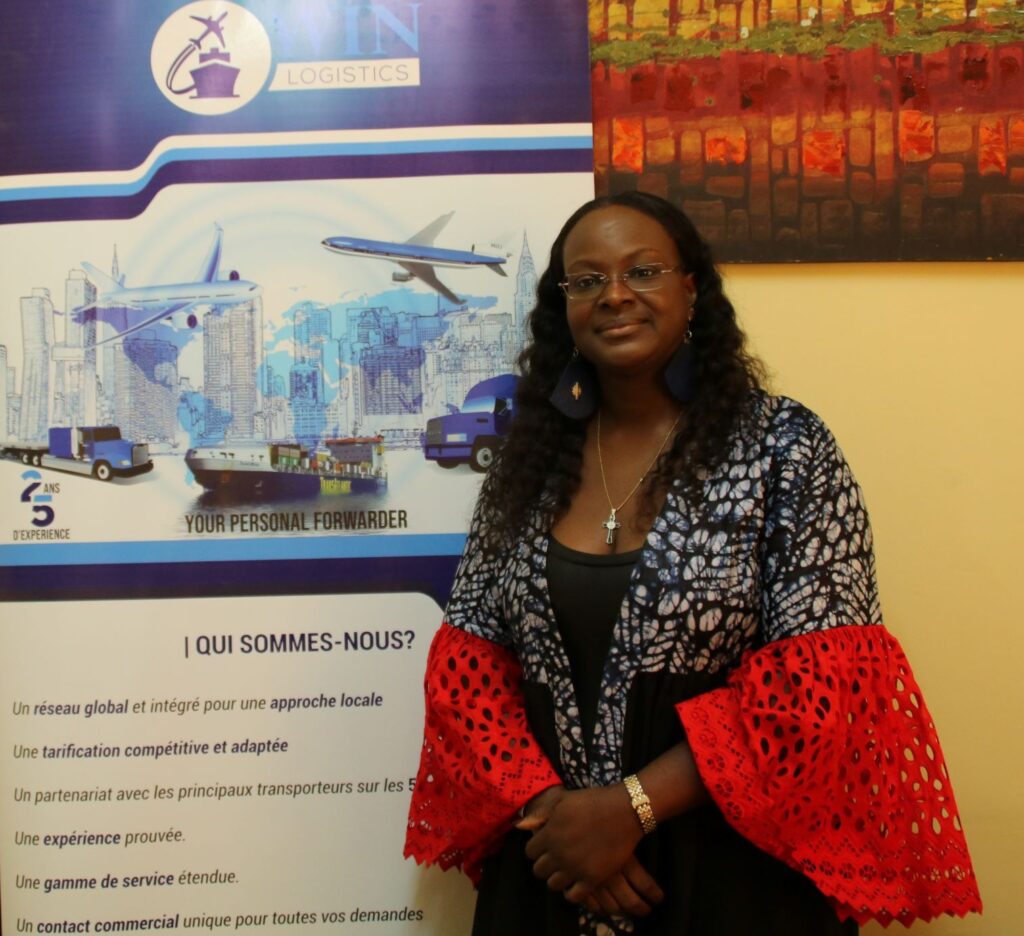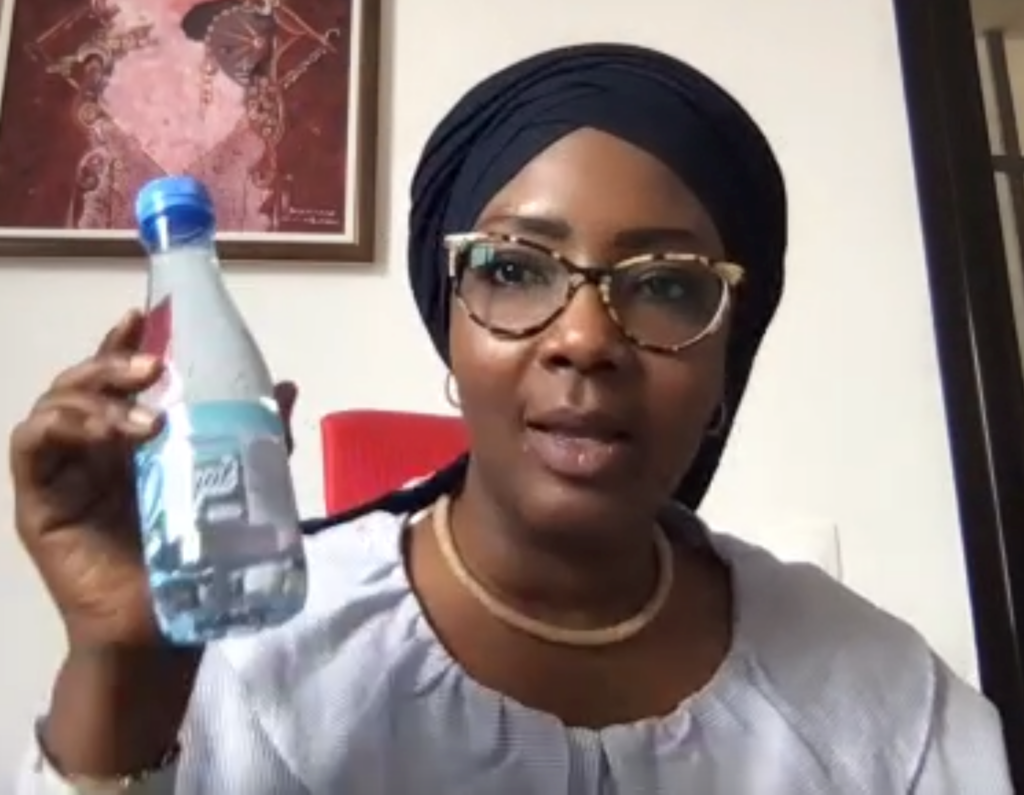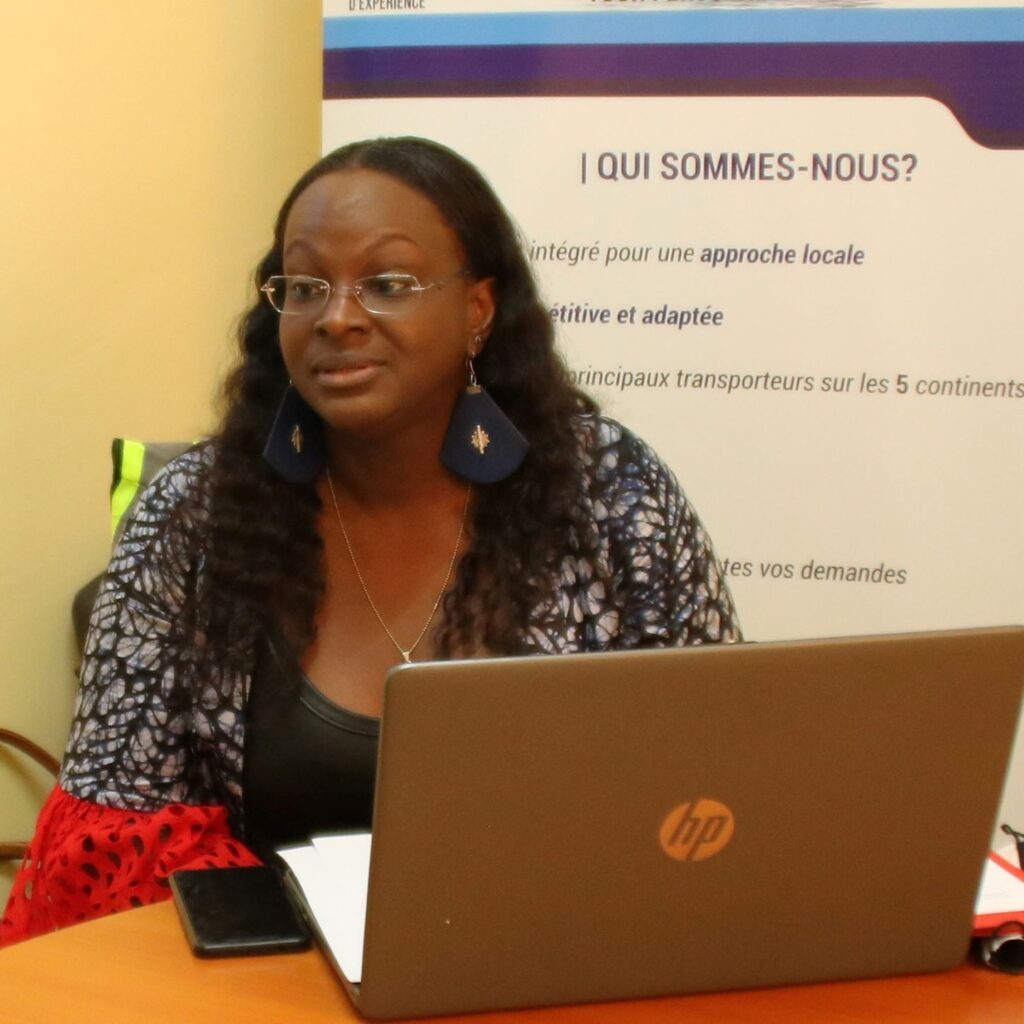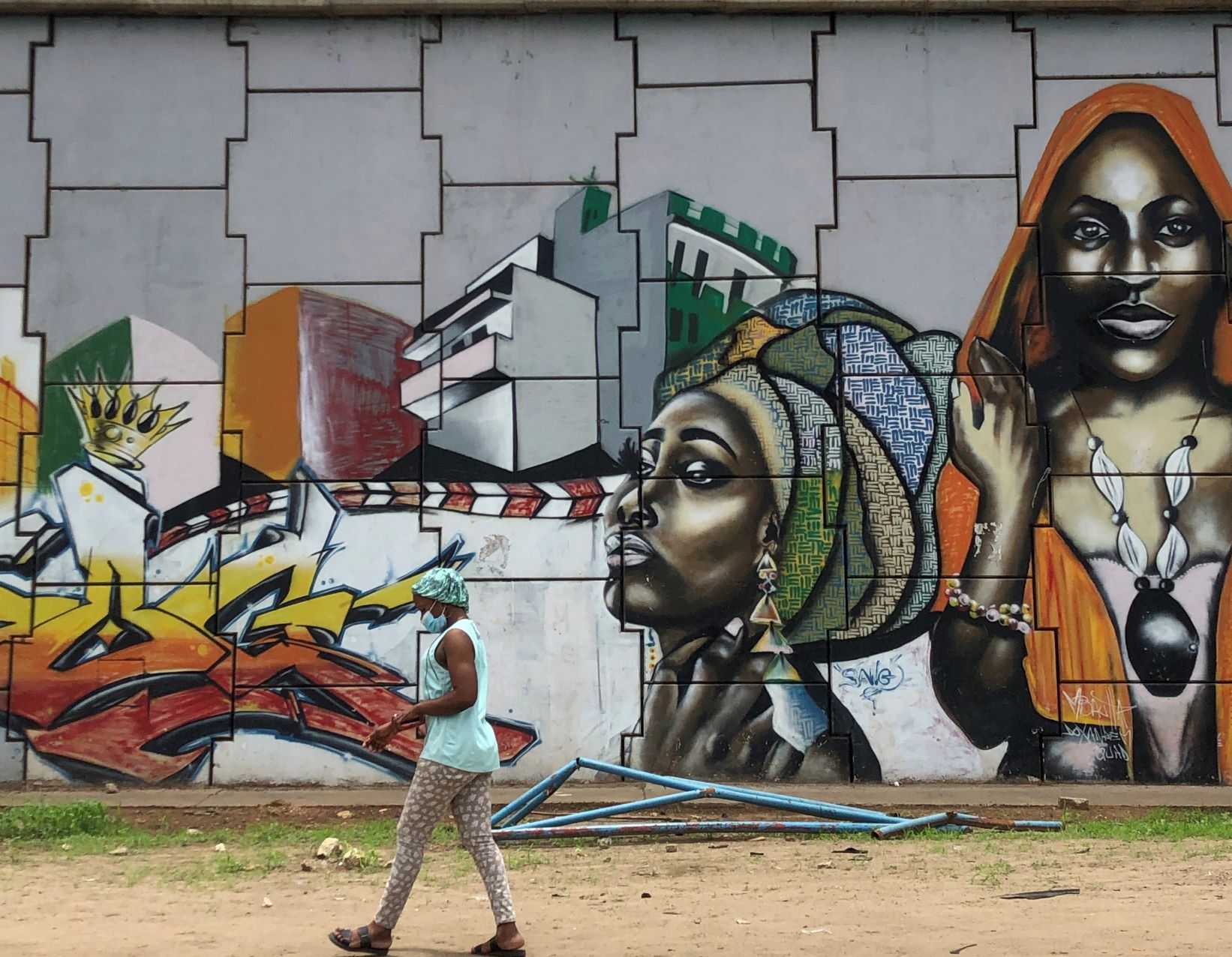Traditional attitudes toward marriage and family still prevail in many parts of the world. Going against this norm to start a business while meeting the social demands of life requires courage and self-confidence. Two women entrepreneurs from Senegal share their entrepreneurial journey with us, emphasizing the importance of support systems.
In the district of SICAP-Liberté in the center of Dakar, the capital of Senegal, yellow-black taxis and colorful buses – ‘Car Rapide’ – crowd the busy road. A goat scurries across the street, trying to escape the unbearable heat in August. There is little sign that the country just entered the fourth wave of the Covid-19 pandemic. So, it is challenging to cross the busy street and get to the yellow office building where Marie Louise Ndoye welcomes her guests with a warm smile hidden under her facemask.
Ndoye is the founder of WIN Logistics, a cargo and freight company, based in Dakar, Senegal. Capitalizing on more than 25 years of experience in the industry, Ndoye started WIN Logistics with a vision of creating a freight forwarder fully owned by Senegalese people.

Marie Louise Ndoye is the founder of WIN Logistics, Senegal. Photo credit: Felicia Siegrist/We-Fi World Bank
The logistics industry in Africa is not only dominated by European multinationals but also mainly by men. “It is an industry reserved for men. At the beginning of my career, I had to demonstrate that I was competent enough to do my work and only got accepted once I had proven myself. As a result, I feel I had to work twice as hard as my male colleagues”, the entrepreneur explains.
Khady Diop, who leads a water bottling firm in the Thiès region, had a similar experience. “When I took the leadership of WIN Industries in 2016, almost all employees were men. They looked at me like, ‘let’s wait and see what this woman can do’. So, in the beginning, people don’t trust a woman leader”, she says.

Khady Diop leads WIN Industries, a water bottling firm in the Thiès region of Senegal. Photo credit: Felicia Siegrist/We-Fi World Bank
Soon, Diop transformed the whole company and revolutionized the Senegalese market by launching the most affordable bottled water in the market and was motivated by the mission to democratize access to water in Senegal. Fueled by this success, her employees started to gain confidence in her and value her abilities as a female leader.
Participating in the We-Fi funded Pareel Project
The two women are currently taking part in the first cohort of the Pareel project, a dedicated capacity-building and mentoring project within the World Bank Group We-Fi program in Senegal. It is a three-month support program for women entrepreneurs to improve their access to markets and finance through a combination of technical and leadership skills training, coaching, and networking, implemented by Deloitte.
Ndoye and Diop agree that starting or leading a business as a woman in Senegal comes with many challenges due to the dominant social norms, which do not align with a woman starting a business and even less in a male-dominated industry. For example, in Senegal, being married and having children are highly valued for a woman, not being an entrepreneur as starting a business takes a lot of time away from the family. Going against these norms requires courage and self-confidence. The two women entrepreneurs underline the importance of having a solid support network to overcome such barriers.
“Getting the support of your husband, family, and women’s networks is fundamental because social norms are so strong that being on your own makes it almost impossible to get ahead,” Diop says.
The Pareel project aims to reach 150 women-owned or women-led SMEs in Senegal.
Ndoye says the training enabled her to improve her soft skills such as emotional intelligence, leadership, and public speaking while also receiving personal coaching in business processes. She hopes that these skills, combined with technical training on growth strategies, will help her access external financing.

Ndoye believes it is crucial for women entrepreneurs to connect through informal networks, which are not part of official communication channels but are extremely powerful.
“In the beginning, when I was refused a bank credit, I wanted to demonstrate that I could grow my business without external financing. However, now I have come to a point where I am obliged to get financing to realize my mission and expand internationally. I know that if I don’t get financing, I will always stay small,” the entrepreneur explains.
Over the past years, she expanded her firm and acquired numerous clients from Europe, the US, Africa, and Asia. In addition, Ndoye engages in consulting and training services through an association she established besides WIN Logistics.
For Diop, the primary motivation for joining the program was to network with other women entrepreneurs. In addition, she wants to gain new digital skills and learn how to use technologies to access new markets, such as online deliveries of bottled water.
Reaching women through informal channels
Both entrepreneurs learned about Pareel through a WhatsApp group called “Entre Yaays” (between mothers), where over 100 women entrepreneurs share advice and information.
Logistics entrepreneur, Ndoye, says it is crucial to understand the dynamics of such informal networks, which are not part of official communication channels but are extremely powerful to reach women entrepreneurs. Identifying such resources and leveraging them is fundamental to help women entrepreneurs build a robust support system and access new markets, finance, and skills.
About the author
Felicia Siegrist is a consultant with the We-Fi Secretariat. Recent experiences as a Mercator Fellow on International Affairs include work in Kenya, Uganda, and Senegal where she focused on exploring different models and approaches that strengthen women’s participation in entrepreneurship ecosystems.

